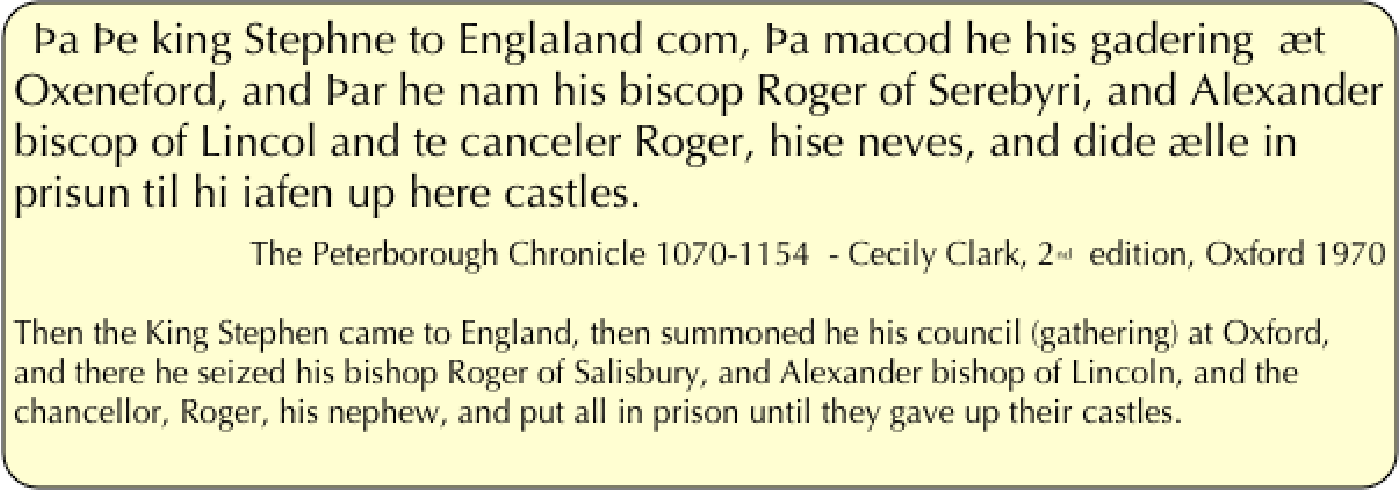
Then the King Stephen came to England, then summoned he his council (gathering) at Oxford, and there he seized his bishop Roger of Salisbury, and Alexander bishop of Lincoln, and the chancellor, Roger, his nephew, and put all in prison until they gave up their castles.

Hugh Bradecote speaks Norman French among those of his own social class, and language was very much a mark of class at this time. However, he has learned English (Old English/early Middle English) from childhood, since his nurse would have been English, and if a manorial lord could not understand what his peasants said, nor give them his command, it weakened the bond between them and made it more likely that they would cheat him in little ways. Tenants-in-chief with lands across the Channel, and interests at the Norman French speaking court, would not deign to use it, but for Bradecote it is a vital tool. Thus, most of the conversations that take place in the stories would have been in English, with a few in Norman French, which Catchpoll has picked up enough to follow, having worked in the castle and for the Sheriff for so long. Old English looks more alien to the modern eye than it sounds to our ear, and although spellings have changed over the millennium, about one third of the language we use today is basically what we used then. The Normans gave us words in government, in law, and the ‘finer’ things, the cooked meats of beef and pork and mutton for example, but it never replaced English, merely added a new layer to be assimilated. I am one of those who thinks that the Scandinavian languages in the Danelaw were more significant in the long term, since they not only added vocabulary but also had significant effects on the way our grammar altered, especially in the area of inflexions.
Middle English is generally accepted as commencing from the early 12th century. Much of what survives of Old English is in the West Saxon dialect, which came to dominate as Wessex itself became the centre of kingship and governance in Anglo-Saxon England. However, after the Conquest it appears scribes were writing in a way that reflected how their local dialect had developed, with more Scandinavian words in the Danelaw. Some Latin had become assimilated in areas such as things to do with church and religion, and there were already some Norman French words such as ‘tresor’. Moreover, the word endings and inflexions that had been clear in the Wessex of Alfred were blurring. The Peterborough Chronicle, which has useful information on the reign of King Stephen, clearly shows that English had moved on from, for example, Beowulf.
Even without study, the gist of much of what is written in the Peterborough Chronicle can be understood. As an example -
